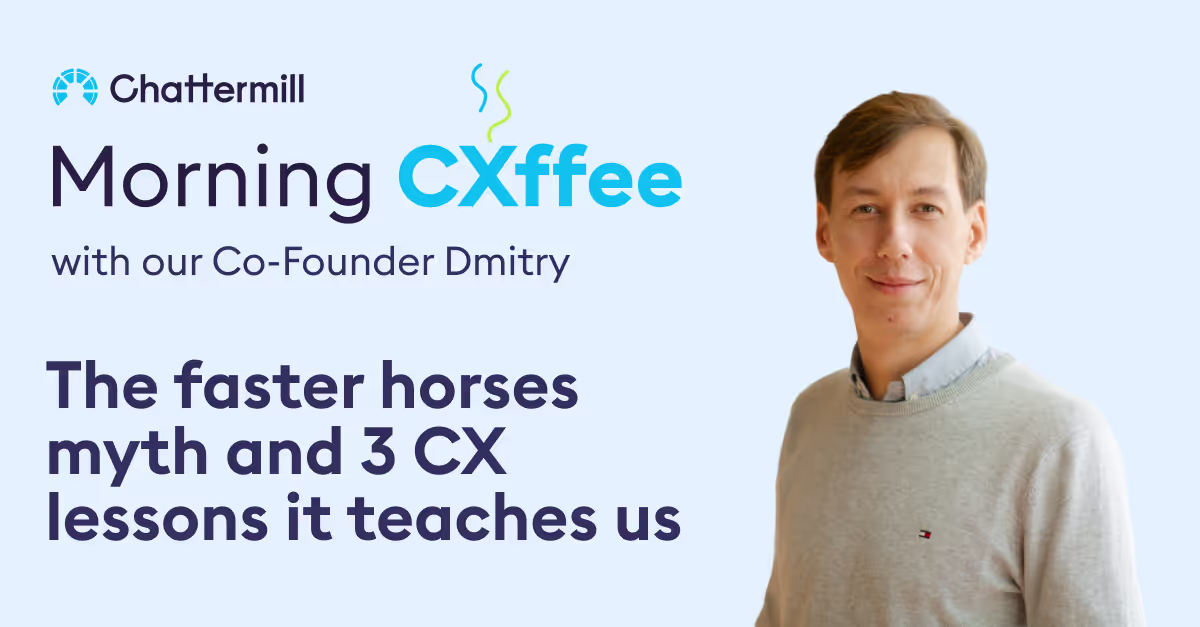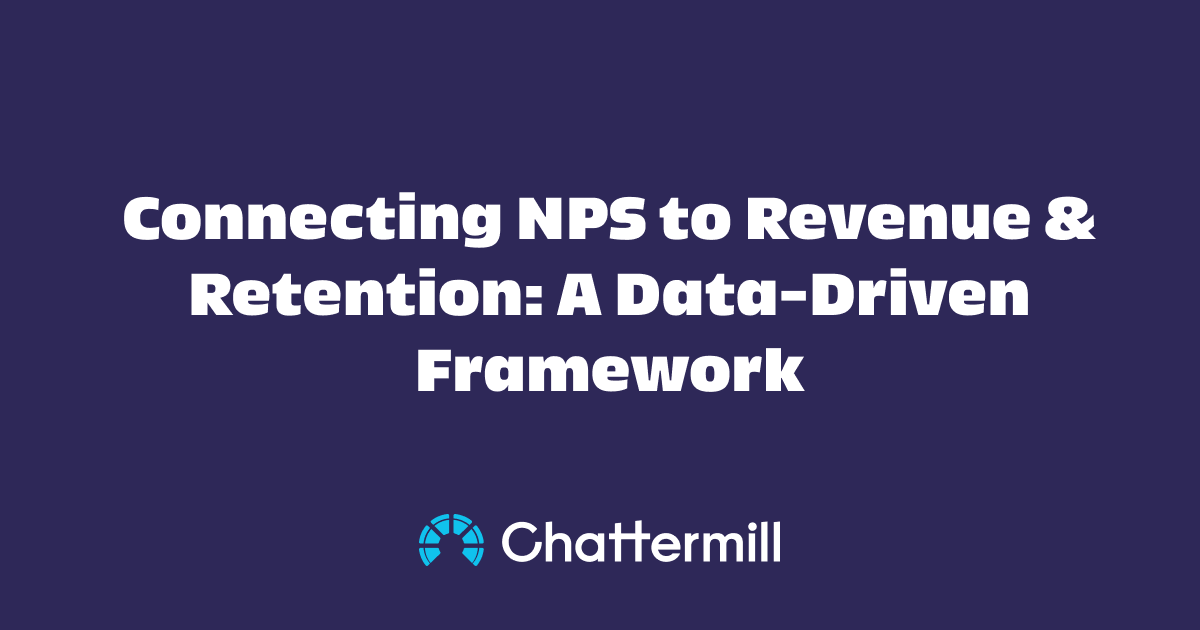Just over 100 years ago Henry Ford revolutionised transportation and in the process became one of the richest and most famous men of his time.
He didn’t invent the car, nor did he invent the internal combustion engine, but the approach he took to their production and sale changed the world.
In different circles Ford is remembered for different things.
In the experience space he is often portrayed as a visionary who didn’t value what the customer thought. His alleged quotes used to invalidate the concept of being customer-led.
However, as is so often the case, digging a little deeper the truth is somewhat different.
Looking at what he actually said (and what he didn’t) illuminates 3 timeless fundamentals of success.
“If I had asked people what they wanted, they would have said faster horses.”
We’ve probably all been in a meeting where this particular quote has been used to undermine the idea of listening to customers. It’s useful for anyone who has their own reasons for ignoring the customer’s perspective. It’s easier to roll out this cliche than it is to say “I don’t want to have to listen to customers” or “I’d rather just do it the way I want to, thanks”.
The first thing to note is that, for the vast majority of human history, a faster horse would in fact have been the right answer. Historians believe the Indo-Europeans domesticated horses around 4,000 years ago. The internal combustion engine came along around 150 years ago. It was only the alignment of this new technology and a combination of other developments at this time that made the motor car possible.
So for the best part of 4 millennia the customer would have been right.
But of course this isn’t the real point that this quote misses.
It is certainly true that the customer may not know the best way to make their life better. How could they? For the customer to always have the answer they would need to be an innovative visionary in every sector of their lives and for every product they use.
As the saying goes, people are experts about their problems, not the solutions.
It’s not the customer’s job to tell us how we should make things better (figuring that out is our job), but this does not mean their perspective is irrelevant.
As Steve Jobs, a man often credited with creating things that people didn’t know they needed, famously said “You’ve got to start with the customer experience and work backwards to the technology”.
Both visionaries and mere mortals alike need to understand and listen to the customer.
The motor car solved peoples transportation needs in a completely new way, it delivered a significantly better experience. But it was a success because it was based on what people valued; their needs, requirements, desires and aspirations.
However the fact that customers can’t simply tell us what to do is what makes innovation and improvement so challenging. Effectively converting customer expectations and needs into successful, scalable, business solutions is fundamentally difficult because it requires us to:
1. Accurately understand customers needs and perceptions
2. Decide how to make the customer’s life better in a way that is sustainable and profitable
3. Execute on these plans creatively and effectively
Each step needs to be in place to succeed.
Skipping to step 2 is not the right approach. Nor was this approach advocated by Ford. It may be his most famous quote but, for the record, it appears unlikely that he ever said it. His life and remarks are both well documented and yet there is simply no contemporary record of him ever having said this. The first reference to it actually appears in 1999, more than half a century after he died…in a cruise ship magazine…
“Any color the customer wants, as long as it’s black”
This second, equally pithy, quote is also often misunderstood.
Ford’s decision to only allow black wasn’t a snub to customer choice, it was a recognition of the value of lower cost. Previously multiple colours had been available, but his new moving assembly line in 1913 was a game changer. This new approach reduced the time it took to build a car from more than 12 hours to 93 minutes. Black paint was the cheapest option, but more importantly focusing on a single colour meant that the production line did not need to pause while workers changed the paint and cleaned the equipment. Providing black as the sole option meant cost efficiency.
A stated mission of Ford was:
"I will build a motor car for the great multitude...constructed of the best materials, by the best men to be hired, after the simplest designs that modern engineering can devise...so low in price that no man making a good salary will be unable to own one-and enjoy with his family the blessing of hours of pleasure in God's great open spaces."
Ford’s approach was effectively “Better than a faster horse, as long as it’s black” and customers liked that deal. It was something that met their needs more effectively than they could have imagined, at a price they could afford.
7 years later Ford was selling 10 times more cars than its closest competitor.
Similar to Ryanair’s laser focus on cost as the thing that matters to their customers, Ford recognised that price was more important than colour.
The second fundamental this illustrates is the importance of understanding the compromises your customers are prepared to make.
It’s very difficult to give customers everything that they want and remain profitable as a business. However all customers make ‘experience trade offs’ and it is effectively capitalising on these that is the key to sustainable growth.
These experience trade offs are not static, however, they evolve over time. Competitive offerings can have a significant impact on how customers value different things. The launch of General Motors “a car for every purse” policy divided the market into different segments, with different models targeting each strata. Customers now had options and their experience trade offs became significantly more nuanced. Although Ford had effectively understood customers’ experience compromises initially, he was slow to recognise this change. Market share suffered accordingly and over 6 years Ford went from selling 60% of the cars in the US to just 15%.
"The competitor to be feared is one who never bothers about you at all but goes on making his own business better all the time."
A less well known quote perhaps, but one borne out from his own experience. Ford initially benefited from a willingness to take a different path to the rest of the market. Before subsequently being heavily impacted by failing to react to changing customer sentiment and competitive offerings.
He had been incredibly effective at capitalising on an emergent technology and delivered some inspired innovations to dominate the market and yet, despite this head start, others soon caught up. Even when Ford belatedly reacted to the changes of the competition it was not enough to reverse the slide.
The 3rd fundamental is that if neither visionary genius nor imitating the competition is the answer, some other north star is required to guide a business to consistently get better.
To be the competitor that is feared and to “go on making their own business better all the time” an organisation needs another way to consistently and repeatedly take the right decisions.
If this north star isn’t the experience of the customer, I can’t think of what else it could be.
The last word
Henry Ford is so often quoted to make a particular point, yet taking a moment to look deeper suggests his words actually teach us different lessons. Looking back 100 years we see a nascent market fuelled by game changing technological innovation. Yet the importance of customers’ sentiment and what they wanted from their experience shines brightly back at us through the mists of time.
As Artificial Intelligence takes centre stage as the game changing technology of the day, it’s worth reflecting on. New tech, but the human fundamentals aren’t going anywhere. Once again, those that most successfully marry the latest innovations with understanding customers will succeed.
It seems fitting to leave the last word to Ford, so here’s a final quote that feels as true now as it did then.
"We live in an era of tremendous facts. And the facts are facts. They are also unpleasant facts, which does not decrease their factual percentage one bit. Our job is to understand them, to recognize their presence, to learn if we can what they signify and not to fall into the error of minimizing facts because they have a bitter flavor."





.png)










